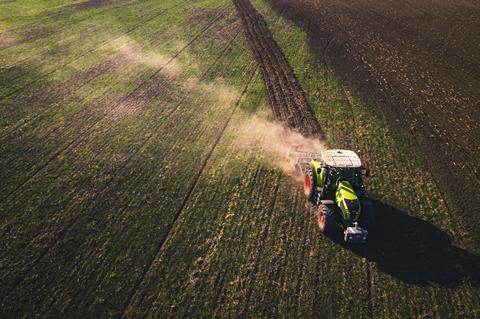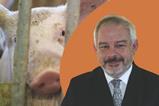JP Garnier points out some more wrongs from the powers that be.
Lord Agnew, once a Government minister in charge of Brexit border preparations, accused businesses of having their ‘head in sand’ over Brexit. This was in 2020. The Brexit alumni is now the chairman of the Trade Facilitation Commission, surely a misnomer as this body has urged the Government “not to rush” and warns of the “danger” regarding food safety and animal welfare of an agreement on veterinary equivalence that would lead the UK “to forfeit the right to decide its own regulatory future”.
Anybody with knowledge of the subject would know how essential this agreement will be for the meat trade with our largest partner, not only in terms of costs but also in terms of administration, hassle and delays. The ‘Commission’ provides two incorrect examples why this should be case. The report says: “The UK bans sow stalls which the EU does not”. This point is not factually right, stalls were banned in 2013 in the EU. Moreover, unlike what is stated in the report, Danish bacon has been fully stall-free since 2013.
It also quotes the ban of live exports that could be revoked by the veterinary agreement. This is a trade policy not a veterinary matter. The body is described as “an independent group of leading customs, border and trade policy experts” obviously without meat trade expertise but with links to the arch-Brexiter Institute of Economic Affairs. This probably is the last salvo of the dogmatic phase of British politics, which has damaged trade so much.

Farmer harmers
Pity the farmers! I shall not enter the debate of farm values and the new inheritance tax, although I am more leaning towards NFU and CLA than Treasury estimates of the number of actual farms - not land holdings, involved. As we speak, the Government is brewing a lethal cocktail that will affect farming and the primary meat processing sector.
- The low margins food and farming businesses will be disproportionally hit by the hike to national insurance, minimum wage, new employment regulations and lower business tax relief.
- The controversial carbon tax on fertilisers will impact many livestock farmers.
- The phasing-out of direct payments to farmers in England is going to be accelerated, affecting the survival of livestock farms. Already, the grazing livestock sector (lowland and less favoured areas) saw 24% and 12% falls in income respectively to £17,300 and £23,500 between 2022 and 2023 according to Defra. 2024 promises a further decline of incomes due to the weather conditions and falling support.
- Chancellor Rachel Reeves’s budget has overhauled agricultural funding for the devolved nations, integrating it into each region’s broader block grant through the Barnett formula, rather than maintaining separate, ring-fenced allocations. I am surprised this important news went unnoticed. Without ring-fencing (as is the case in the EU), farming budgets are the open piggy banks of governments the world over. In view of the financial difficulties of the devolved administrations, one should expect lower vital support for Scottish and Welsh livestock farmers for years to come.
- Environmental constraints to farming are mounting daily. Food production and security are under threat from rewilding, afforestation for carbon-offsetting and soil carbon sequestration.
- The delayed National Food Strategy is due to include policies to curb meat consumption, inspired by Henry Dimbleby, whose (unscientific) views on the subject are well known.
Let’s remember two figures: the average return on capital for a farmer is 0.5% and the average agricultural wage is £25,000 per annum.
And finally…
According to well-informed Slovak MEP Michal Wiezik, benchmarking for the EU Deforestation Regulation (EUDR), now postponed, shows China, Bangladesh, Vietnam and Russia at a lesser risk of deforestation than Nordic countries!




















